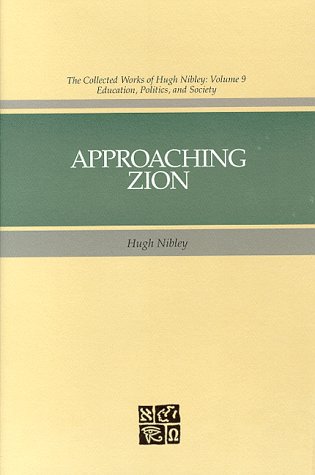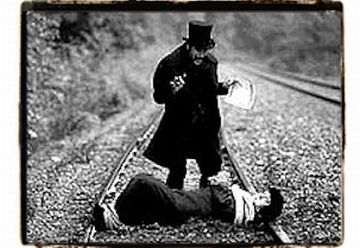-
•
•
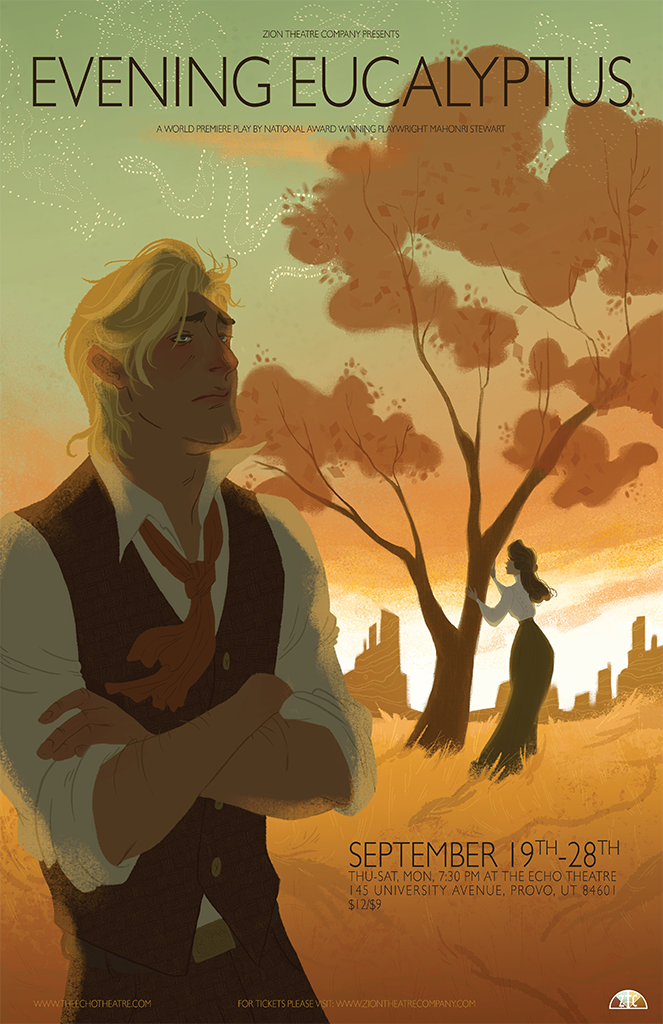
A couple of weeks ago, I reviewed Mahonri Stewart’s two plays The Fading Flower and Swallow the Sun. I liked them both. I’m also reading the anthology of plays that he compiled and edited Saints on Stage. So far it’s been fantastic just for the historical overview of Mormon drama from the Restoration until today, and I’m just getting into Robert Elliot’s Fires of the Mind. So, when I learned that his theater company (Zion Theatre Company) was putting on a Kickstarter campaign, I jumped at the chance to back it. Zion Theatre Company is currently in its third year,… Read More
-
•
•
63 responses
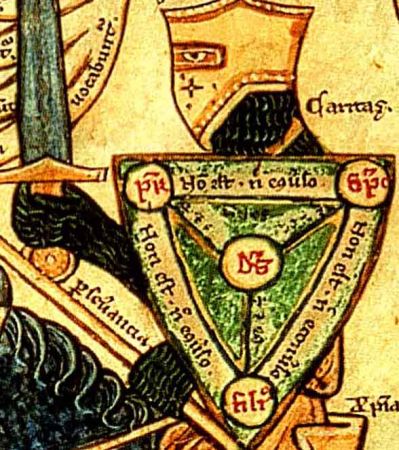
Against my better judgment, and to the detriment of my workday, I allowed myself to be temporarily pulled into a Facebook debate on Friday about Mormonism and orthodox Christianity. This went about as well as could be expected, of course. The word “cult” was used in earnest, the Tanners were quoted, and all in all it was a horrifying flashback to my high school days as an Internet messageboard crusader. (Thank goodness those days are over!) I eventually came to my senses and retreated like Luke Skywalker fleeing the Mos Eisley Cantina. I did, however, gain some insight into the… Read More
-
•
•
7 responses
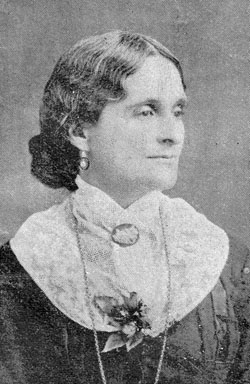
It is nice to see our duties described in a way that makes clear their role in our communities. Take tithing, for example. Lorenzo Snow’s teachings in the current Priesthood/Relief Society manual (lesson 12) clearly cover our obligation, outlining how much we must provide and how tithing is a commandment of the Lord. But the lesson doesn’t put obedience to this commandment in context. It doesn’t show how it works in our everyday lives and what its effects are on our community. I think this poem does put the commandment in context. Read More
-
•
•
I occasionally see from both inside and outside of the Church those who suggest that Mormons are somehow against education. While there certainly have been some anti-intellectual ideas floating around the Church almost from the beginning, the general tenor of Church teachings have always been supportive of education, and D&C Gospel Doctrine lesson #23 is no different. Church leaders have repeatedly, since the days of Joseph Smith, made it clear that education is not just good, it is part of the very purpose of life. Today’s poem sees education as a crucial element in the progress of man: Read More
-
•
•
15 responses
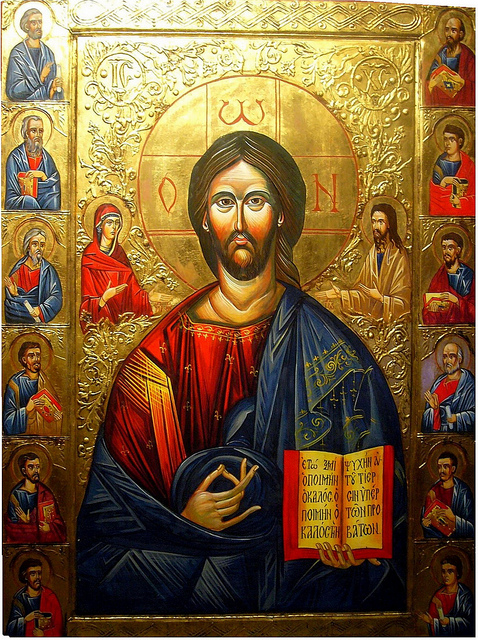
I’ve recently been involved in teacher training in my ward and have prepared some materials that I’m going to share across a few posts. Read More
-
•
•
16 responses
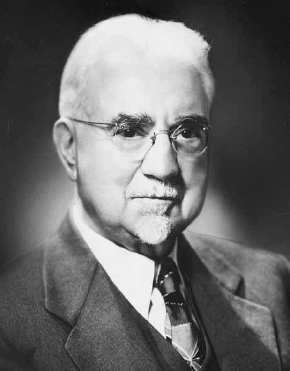
One of the most difficult concepts for many (perhaps even most) Church members in U.S. culture today is the idea that we should let the Lord direct our lives. Part of the difficulty lies in our desires, which may be righteous, but also may not be what the Lord would have us do. How often do we ask what he wants us to do? Another source of doubt about this concept is knowing what the Lord would have us do, even if we have asked. We sometimes feel like we are asking and not getting an answer (although I suspect… Read More
-
•
•
4 responses
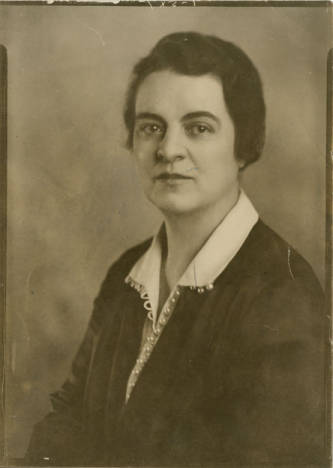
The word of wisdom is strongly connected with who we are as Mormons—it has become as much an identifier as pork is for Jews and for Muslims. We emphasize the importance of this teaching in lessons like the current Gospel Doctrine lesson (#22), and we teach it to kids almost from birth. But while section 89 was received by Joseph Smith in 1833, it really didn’t become an identifying characteristic of Mormons until past 1900 and, as I understand it, was only included among the Temple recommend questions in the 1950s. It is perhaps no surprise, then, that it was… Read More
-
•
•
37 responses

Something insidious infects our children from the moment they’re born. It’s unstoppable. It surrounds us, burrows in deep, far below our conscious minds, and like a computer virus, writes subtle programming that dictates our worldview, our attitudes, and assumptions, shaping our very reflexes… Read More
-
•
•
7 responses
I now genuinely regret my use of the term ‘violence’ in my recent post. My intention was to be completely candid and point out a phenomenon of our collective experience. As I often tell my students, however, the thoughts, intentions and arguments that might genuinely be running through our heads when we compose something does not change the meaning of the end product. Read More
-
•
•
53 responses

On a recent long drive, I listened to all 12 lectures of a Science and Religion audio book by Professor Lawrence Principe of Johns Hopkins. A topic of personal interest (see my earlier T&S series here, here, here , and here), the science-religion issue should also be more of an interest to LDS scholars and apologists in general, given the role that science, scientism, or a mixture of the two often seems to play in the thinking of young Mormons who choose to exit the Church. My sense is that most people pick up from the media or general education… Read More
-
•
•
71 responses
A great deal of the discussion on women in the priesthood that I see happening right now[1] concerns our efforts to control and propagate various narratives. Personally, I find our current default narratives even more upsetting than our current practices. Read More
-
•
•
When we think of the second coming of Christ and the things that will happen in the last days, frequently our focus is on the prophesied destruction and the “signs of the times.” But as the focus of D&C Gospel Doctrine lesson 21 shows, we need not put our focus there, but instead we can focus on what will happen to the righteous and the millennium that will be ushered in by the second coming. That same kind of focus can be seen in the following hymn by W. W. Phelps: Read More
-
•
•
13 responses
The Mormon Theology Seminar will host a two-day conference, “Opposition in All Things: Mormon Perspectives on the Fall,” at Utah Valley University on June 7-8, 2013. Read More
-
•
•
19 responses
We need bodies to become like God. But bodies are organs of passing. Read More
-
•
•
120 responses

My husband and I are both graduates of LDS seminary. I, by the skin of my teeth after a lingering bout with mononucleosis and a pile of home study booklets. Sam, after being on seminary council and a master seminary bowler. So far our children have attended 18 total years of seminary instruction in two states, at church buildings and seven different released-time facilities, and with at least 37 different teachers. We have three daughters who are seminary graduates, one daughter who is a current enrollee, and two sons who will be joining the ranks in the next few years.… Read More
-
•
•
20 responses

Mahonri Stewart recently released two of his plays–The Fading Flower and Swallow the Sun–together in a single volume. I found both of them to be so compelling, that I’m truly sad that no productions have been put on or are scheduled within 1,000 miles of where I live on the East Coast. More than just enjoyable, however, I found that they presented a strong and compellingly Mormon artistic perspective. While there is no doubt that the subject matter of both plays is Mormon, what really struck me was less the viewed and more the viewpoint. The Fading Flower centers around… Read More
-
•
•
10 responses
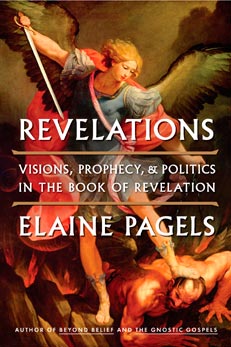
My previous post on the upcoming BYU New Testament Commentary series was so well received I have decided to do some follow-up posts discussing individual books. I’ll start with Revelation, partly because that will be the first volume in the BYU series but also because I happen to have a copy of Elaine Pagels’ Revelations: Visions, Prophecy, & Politics in the Book of Revelation sitting on my desk for one more week. While a fairly informed reader of the New Testament, I’m no scholar and navigate Greek only with the help of a good interlinear New Testament and various supplements,… Read More
-
•
•
3 responses
It seems like a few verses in the D&C are all we know about the life after this. Lesson 20 of the Gospel Doctrine manual covers D&C 76, 131, 137, and part of 132, and in these scriptures we discover a structure for the hereafter, a segregation of the children of God into groups based on the lives they live here on earth. But the descriptions in scripture are far from specific—after all, how much information can be provided in a few hundred words? I don’t know if the poem below adds much or not. Written by Orson F. Whitney,… Read More
-
•
•
51 responses
There is something creative about getting to know God: to recognize the infinite attributes of God and to express that ineffability in testimony and story, art and song. Sometimes, one person’s vision of God becomes codified, set in stone as the truth for all people. It may be a beautiful, profound view of God, one that answers the yearning of the time. But God is greater than even the most perceptive one’s capacity to behold, much less fully communicate. Man’s best description of God is still a description of man, not of God. And so I am glad that we… Read More
-
•
•
8 responses

I’ve been asked to give a series of three 1-hr lectures on the Bible in French, to be held at three different LDS chapels in Paris, beginning in mid-June. (Yes, we’re currently in Paris, where man can live on bread alone. Quite happily, too.) These lectures will be open and advertised to the public, as a kind of open-door/public education thing. They’re still to be finalized and scheduled, but I’m trying to narrow down my topics, which will not be Mormon-centric. Each lecture must be freestanding, because we’re not going to get the exact same group each time, though presumably… Read More
-
•
•
11 responses
I never re-read books, but I decided to read this one, twenty-two years after I first read it, because “he is the reason I believe in God; I am a Christian because of Owen Meany.” That’s a quote from the first sentence of the book, but it is true, literally true, for me, too. I feel somewhat guilty that this book triggered my conversion, because it is not G-rated; in fact, it is a little crass. It isn’t sweet and it isn’t fluffy and it criticizes religion and miracles and believers just as much as it celebrates them. But I… Read More
-
•
•
3 responses
We tend to talk about the benefits of the temple more than the obligations. In the temple we may gain knowledge, revelation, be sealed to our families, and give our relatives who have passed on the opportunity to accept necessary earthly ordinances—all important elements described in the Lorenzo Snow manual lesson 10. But these benefits come with some obligations (beyond those required to qualify for a recommend), such as the obligation to attend the temple periodically, support temple work, do genealogical work, and even work in the temple when called. On a practical level, these obligations are quite different from… Read More
-
•
•
2 responses
How thin is the veil? Might we remember bits of our experience there? Could a melody we heard there be familiar to us here? (assuming we even heard melodies there). The idea of the pre-existence and of the other elements of the plan of salvation, discussed in D&C Gospel Doctrine lesson 19, are a source of endless wonder and speculation. We just don’t know much about what our existence before and after this life was and will be like. But, perhaps nothing says more about our belief in the plan of salvation than our fascination with speculating about what the… Read More
-
•
•
67 responses
I have been trying to think through Elizabeth Smart’s remarks about chewed up gum and the way that we teach chastity to our youth. I have never heard the chewed up gum analogy, but I remember stories about cupcakes passed around and similar visual aids. I always thought there was something ugly about these lessons. It seems to me that the fundamental problem with all of these analogies is that they equate chastity with virginity. Virginity by definition is something that once lost is never regained. Historically, it has also been associated with a whole bunch of disturbing male attitudes… Read More
-
•
•
40 responses
In March at BYU I gave a talk, or more accurately for a guy who can barely use Power-Point, a multi-media extravaganza, involving at least 10 non-fancy slides with absolutely nothing moving around on them. The topic was the title above. For those who want to skip the movie and just read the book, I thought I’d post here a (believe it or not) condensed version of that talk, focusing on the main points, without all the low-tech effects. Of course, the post won’t be nearly as exciting, but some of the clips used at the live talk didn’t make it to the youtube version… Read More
-
•
•
4 responses

Prudence and altruism combined allow us to delay personal gratification or even make sacrifices for the benefit of future people who have not yet been born. The hearts of the fathers must turn to their children Read More


